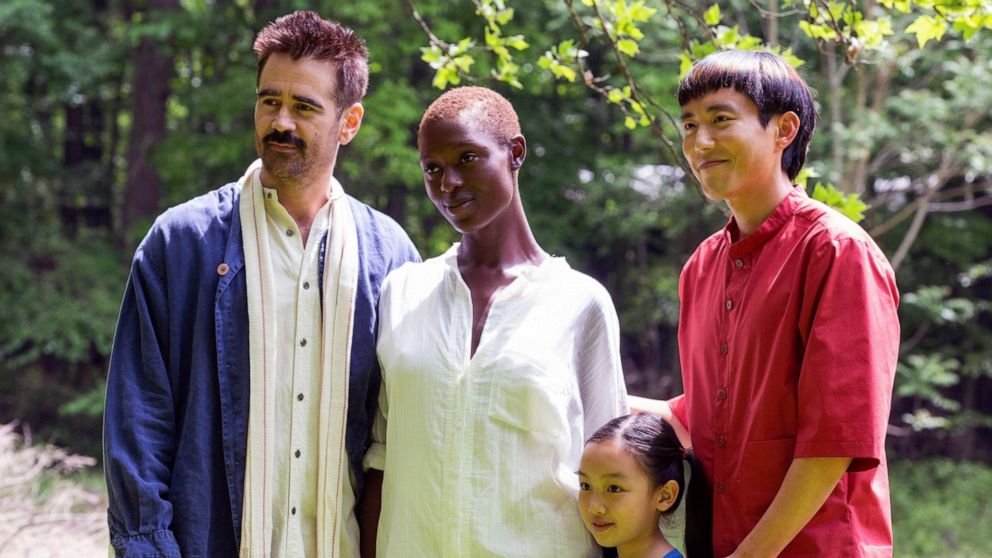As Hollywood’s large superhero movie splashes throughout theater screens this weekend, there is a quieter, far more reflective alternative that examines our collective humanity. After Yang, penned and directed by Kogonada, centers on a loved ones whose android malfunctions, sending their youthful daughter Mika reeling. Mika, performed by a precocious Malea Emma Tjandrawidjaja, was adopted from China, and tense married few Jake (Colin Farrell) and Kyra (Jodie Turner-Smith) obtained her a brother, Yang, from a company named Second Sibling. While Yang (a thoughtful Justin H. Min) is an AI, he’s been a human-like companion for the family. When he breaks, through a spouse and children dance-off competitiveness, Jake will become established to come across a resolve. In his lookup for reparation, Jake encounters Yang’s recollections, which inspire him to reconnect with Kyra and Mika. Â
|
After YANG ★★★★ (4/4 stars) |
Kogonada’s fragile, delicate screenplay is centered on a short tale by Alexander Weinstein titled “Saying Goodbye to Yang.†Like the story, the film is speculative fiction, leaning considerably less in direction of overt sci-fi creation and far more in direction of existential pondering. Where by the small story is established in Detroit, the setting of its onscreen counterpart is nebulous, present someplace in the in close proximity to foreseeable future in some likely metropolis. Just after Yang will definitely attract some comparison to Ex Machina, another story about AI that compresses its narrative into interior spaces, keeping most of the motion in one futuristic residence (and a film with a different memorable dance sequence). But wherever the AI in that film was ominous, in this article he is loving. Yang is a dedicated older brother and he delivers poignant ideas on what it suggests to be human—even though he is not human himself.Â
The slight tale unfurls with precision, little by little unrolling in way that makes it possible for the emotion of the scenes to creep in. It is like observing a butterfly land on your fingertips, briefly, and then flutter away, leaving traces of itself on your hand. As Jake, Farrell not only understands the assignment, but embraces it. It’s a total juxtaposition to Farrell’s other existing purpose as the Penguin in The Batman and he handles it with a deftness for which he’s not constantly specified credit history. His scenes with Mika experience true, as if he is basically a distant father out of the blue noticing his daughter’s presence. Jake begins to become additional knowledgeable of his personal everyday living as he watches Yang’s recollections on a database, reliving earlier times and suffering from new types.Â
Memory, of system, is fickle. What we try to remember as reality is seriously just our memory of the memory and that gradually morphs into one thing else about time. But Yang’s reminiscences, recorded from many moments in advance of his eventual breakdown, are unchanging. Jake replays snippets of Yang’s lifestyle to much better recognize his broken AI and finds surprising information, like Yang’s romantic relationship with a younger lady named Ada (Haley Lu Richardson) and his poignant musings on demise. In a memory with Kyra, Yang confirms that potentially he is just programmed to imagine a selected matter, but he does imagine it.Â
The entire world Kogonada builds feels totally accurate and wholly immersive. This is a time and put that could exist. In its place of sterile, futuristic spaces, the director surrounds the people with organic and natural life, emphasizing the unsure growth of crops all over the interiors. Creation designer Alexandra Schaller deserves every single possible award for her work on the movie, which is visually spectacular. The sets marry flawlessly with the emotional tone of the tale 1 scene, set in a museum, works by using aspen trees merged with lights to underscore a second where by Jake grapples with Yang’s achievable legacy. Cinematographer Benjamin Loeb provides an additional magnificence to visuals, bringing the digicam in close to the actors’ faces in a way that permits for actual intimacy.Â
Immediately after Yang is a wonderful film, both equally in how it seems and in what it evokes. It’s not flashy or dramatic, and extremely little in fact occurs. But isn’t that truer to how we live? On an common day, the authentic motion normally takes put inside us the drama takes place in our have minds. After Yang poses inquiries, certainly, but Kogonada is not there to reply them. Only the viewer can know the reaction to existential quandaries like “What transpires after we die?†or “Can a device ever genuinely embody human consciousness and emotion?†And, of training course, in inquiring individuals questions Kogonada is truly asking: “What does it mean to be human?â€
Observer Reviews are typical assessments of new and noteworthy cinema.
Â

